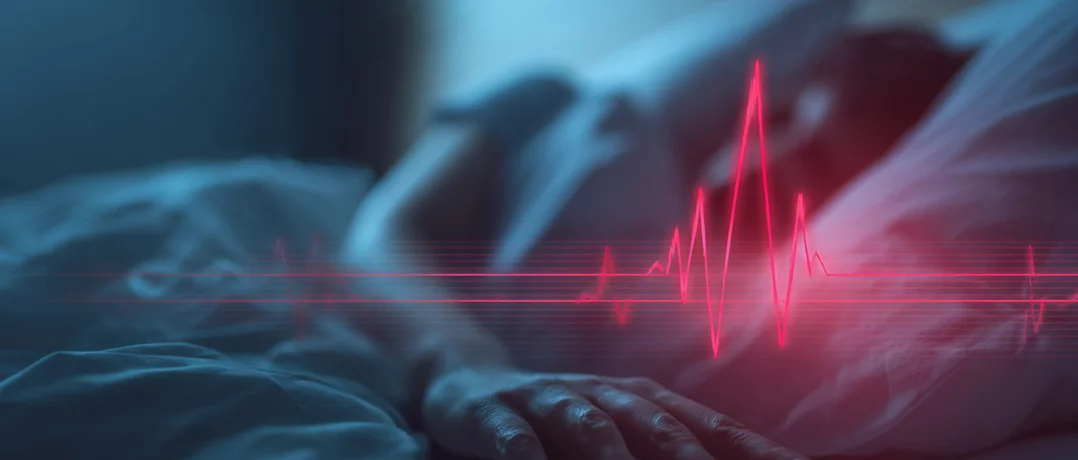People with both sleep apnea and insomnia face the highest risk of high blood pressure.
The link between sleep and blood pressure: How sleep disorders increase cardiovascular risk
The link between sleep and blood pressure: How sleep disorders increase cardiovascular risk


People who suffer from both sleep apnea and insomnia are significantly more likely to have high blood pressure, a major risk factor for heart attack and stroke (University of Gothenburg).
High blood pressure, or hypertension, can have multiple underlying causes, including obesity, stress, and kidney disease. Sleep apnea, a condition characterized by repeated pauses in breathing during the night, is already known to contribute to elevated blood pressure. Insomnia, which involves long-term difficulties falling or staying asleep, has also been linked to cardiovascular risk.
For the first time, this study highlights that the combination of sleep apnea and insomnia represents the strongest risk factor for uncontrolled hypertension, surpassing the risk associated with either condition alone.
The study: Population and methods
Researchers analyzed nearly 4,000 randomly selected middle-aged adults from the general population. Participants underwent blood pressure measurements and an overnight home sleep study. Based on sleep assessments, participants were divided into four groups:
- No sleep problems (2,616 participants)
- Insomnia alone (404 participants)
- Sleep apnea alone (694 participants)
- Both sleep apnea and insomnia (118 participants)
High blood pressure was defined as readings above 140/90 mmHg.
Key findings
The study found a clear gradient of risk:
- Insomnia alone: 4.5% had high blood pressure
- Sleep apnea alone: 7.9% had high blood pressure
- Both conditions: 10.2% had high blood pressure
These results indicate that individuals with both sleep disorders are at the highest risk for hypertension, highlighting the need for targeted monitoring and intervention.
Implications for healthcare
Lead author Mio Kobayashi Frisk, physician at Sahlgrenska University Hospital, emphasized the importance of the findings:
"It is specifically the combination of sleep apnea and insomnia that is most clearly linked to high blood pressure. This knowledge helps identify patients at greatest risk who require closer monitoring in healthcare."
Treatment for patients with both conditions may require a multi-faceted approach. While breathing devices like CPAP masks can help manage sleep apnea, addressing insomnia through sleep hygiene strategies or cognitive behavioral therapy may also be critical for reducing cardiovascular risk, according to senior author Ding Zou.
Study context
This research is part of SCAPIS, a large population-based study funded by the Swedish Heart-Lung Foundation, and the findings are published in the Annals of the American Thoracic Society. The results underscore the growing recognition of sleep quality as a key factor in heart health, supporting international recommendations to prioritize healthy sleep habits for cardiovascular protection.


